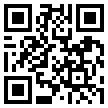FAQs - Claims
Get the Answers to all your Claims related Questions you might have for us.
What is IDV?
IDV stands for the Insured's Declared Value which is deemed to be the sum insured of the vehicle. The IDV of the vehicle is to be fixed on the basis of manufacturers listed selling price of the brand and model, minus depreciation based on the age of the vehicle
What is a No Claim Bonus (NCB)?
A No Claims Bonus is a discount given by an insurer to policyholders who do not claim on their policy in the policy period of car insurance. Typically this starts at 20% in the first claims free policy period of Car Insurance and goes up to maximum of 50%.
What is loading? Do you charge this? How much loading can be charged?
Loading is an additional premium, which is paid at the time of renewal of insurance policy if the claims experience during the policy term has been adverse.
Discount on installing anti-theft alarm and locking system
There is a discount available if you install anti-theft devices in your vehicle provided the device is approved by the Automobile Research Institute of India and installation approved by automobile associations.
Does extra premium have to be paid in case of a claim last year?
There is no extra premium that is payable in case of a claim but if the claim experience is bad then some loading may be charged as per company policy. You only lose your No Claim Bonus that you could have enjoyed had there been no claim on the policy.
What is salvage and total loss?
Salvage is the value of wreck after a vehicle meets with an accident resulting in total loss, whereby retrieval of the vehicle into its initial condition is not possible.
What are the exclusions under the Motor Policy?
Specific Exclusions:
- Any accident outside the geographical area of operation.
- Consequential loss, normal wear and tear.
- Driving without a valid license for that class of vehicle.
- Driving under the influence of liquor / drugs.
- Vehicle not being used as per Limitations to use and.
- Mechanical or electrical breakdown, failure etc which fall under the specific exclusions.
- Willful Damage, Hire or Reward.
- Damage to tires and tubes unless the vehicle is damaged at the same time or the vehicle is stolen.
General exclusion:
- Radioactive contamination, nuclear fission, war invasion.
I own a vehicle which recently met with an accident, but I was not driving it. Can I still make a claim?
You can make a claim in following conditions:
- Insurance Policy for that vehicle should exist,
- If you have paid premium for paid driver or, it would be payable, if the car is being driven with your permission.
- The person driving the car is duly licensed as the premium is taken based on the seating capacity, which also includes the person on the driver’s seat.
What if my car meets with an accident & I do not incur large damage. Is it still compulsory to lodge a claim or I can choose not to claim? Or is it advisable to make a claim on small amounts
It is not always necessary to lodge a claim especially if the damage is small. Actually, It is not advisable to make a claim for small damages because, not only will you have to pay for depreciation and excess, reducing the claim amount to an even smaller figure, but you will also lose your 'NO CLAIM BONUS' (if any) at the time of renewal. However, once you have decided not to claim, you cannot claim these damages at a later stage.
Will I get the entire amount if my windscreen is damaged?
You do get full reimbursement for the windscreen glass. However, there is a depreciation of 50% on the rubber lining and sealant. Additionally, you will also need to bear the policy excesses
Can my claim be rejected?
Any claim can be rejected by an insurance company in certain conditions. Some common reasons for which a claim may be rejected are:
- The policy has expired, or policy has been cancelled or the premium cheque has been dishonored making the policy invalid.
- It could also be that the date of accident or loss falls outside the policy period or
- The person driving the vehicle at the time of the accident did not possess a valid driving license or was under the influence of drugs or alcohol.
- There are also situations where the ownership of the vehicle has changed but the Insurance Company has not been informed within 14 days of such change or the claim was for damages that existed before the policy started.
- Some other reasons could be that the nature of damages does not co-relate with the cause of accident or that the vehicle was being used for other than personal or social purposes.
Quick Downloads
- List of excluded Hospitals.pdf
- List of Network Hospitals.pdf
- Network Hospital Quality Parameter
- List of Non Network hospitals
- List of Ayush Hospitals
- Preferred Garage List
- Claim Form
- List of Non-Payable Items
- PPHI Policy (Grievance Policy)
- Roles, Duties and Responsibilities of Surveyors
- Service Parameters Including Turn Around Time

